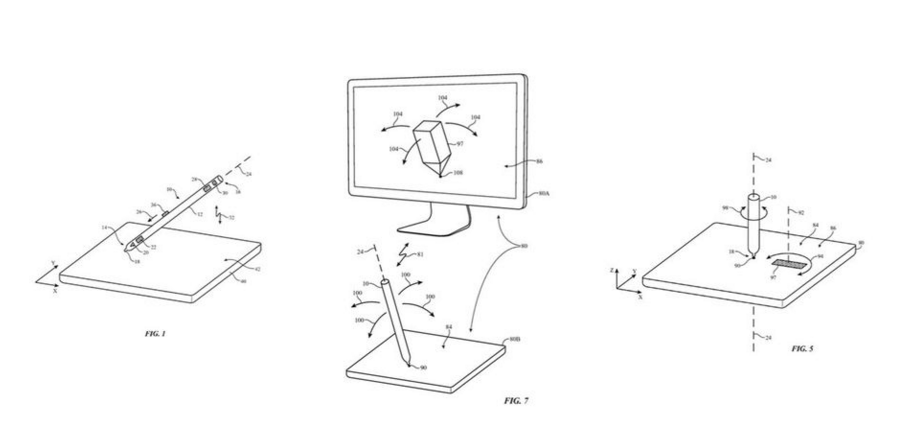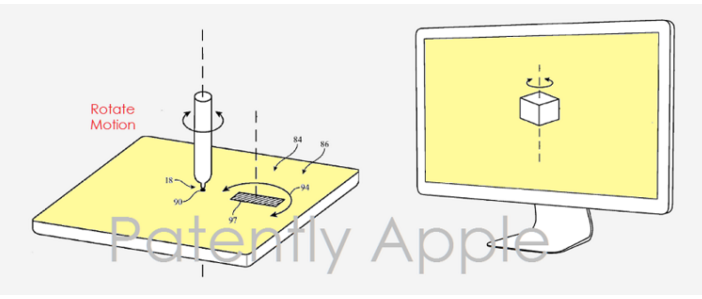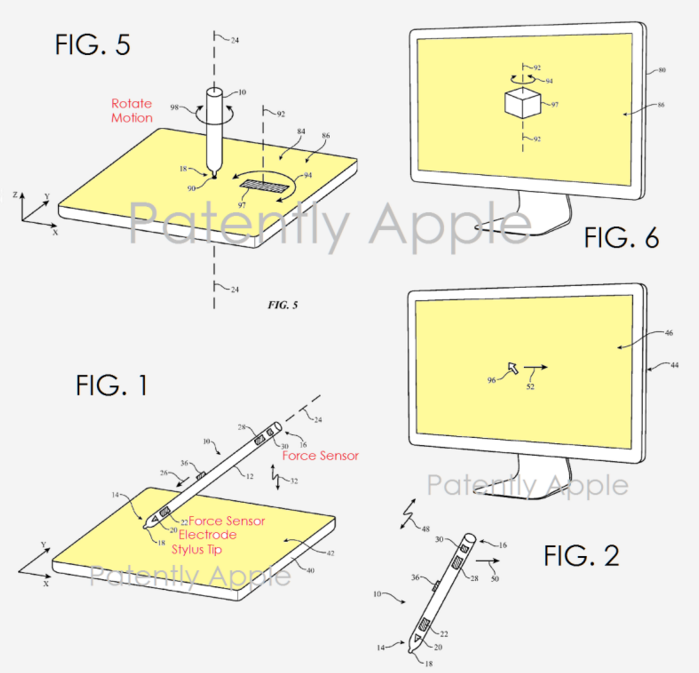In 2010 Steve Jobs was famously quoted for saying, “If you see a stylus, they blew it.” But does Apple still believe this? Not according to its latest patent.

Published by the United States Patent and Trademark Office (USPTO), patent 9,400,570 hints that times are changing. With the release of the iPad Pro and Apple Pencil last year, the tech giant has obviously walked back on its stance on the stylus. Filed in 2014, the patent was only recently made public, suggesting that Apple has bigger plans for the Apple Pencil to make it compatible with Macs.
The new idea illustrates a stylus with what Apple calls “force sensors,” located on both ends of the device, along with an “inertial sensor” which could allow it to switch between several different modes.

Modes described in the patent include applications to interface with Mac trackpads and use as a joystick for gaming and music creation. Apple also cites examples of using the stylus as a “sword, wand, or a hammer” in a game or as a “drum stick, xylophone mallet, a gong beater, a conductor’s baton, or other musical instruments.”
What’s more, the Apple Pencil is evidently being designed to work with in-air gestures to allow users to control presentation slides in Keynote, and to turn pages in Apple's Pages or MS Office while displayed on a monitor in a classroom or boardroom.

Right now Apple’s Magic Trackpad and its trackpads built into its MacBooks have limited input capabilities beyond controlling a cursor and multi-touch gestures. Currently users can use the trackpads to handwrite electronic signatures and non-Roman characters such as Japanese kanji.
In recent years, Apple has expanded the usefulness of its trackpads with Force Touch, a pressure-sensitive multi-touch technology that recognizes how hard it’s pressed. This past June, Apple revealed another patent demonstrating the idea of a stylus that can detect a user’s finger positions, rotation, and force applied. It’s clear the technology company is working away at future advancements.
Like many companies, Apple files and receives patents for many concepts it wishes to protect, and is well-known for patenting products without building them. But given the utility of a beefed-up Apple Pencil, chances are it’s likely we’ll see this device, or similar ones, come to the surface in the years ahead.
Source: Patently Apple
Advertisement
Learn more about Electronic Products Magazine





